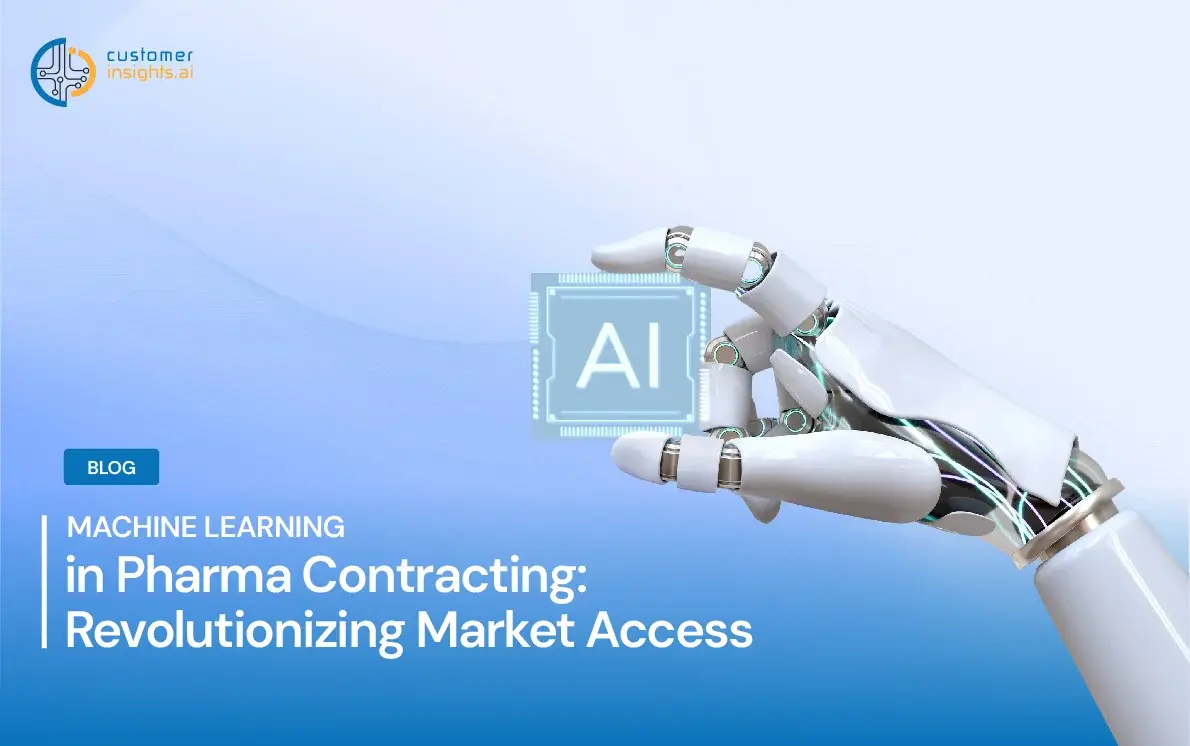Machine Learning in Pharma Contracting: Revolutionizing Market Access
September 28, 2023 | #Blog post

In today's rapidly evolving healthcare landscape, the pharmaceutical industry is facing new challenges and opportunities as it works to improve patient outcomes, reduce costs, and drive value for the healthcare system. Market Access, the process of getting drugs to market and making them available to patients, is a critical part of this effort, and machine learning (ML) based technology is playing an increasingly important role in this process.
Before delving into the role of ML in Market Access contracting, let's first gain a high-level understanding of what ML is. Essentially, ML is a branch of artificial intelligence that involves developing algorithms and statistical models to enable computers to learn and improve their performance on a specific task without being explicitly programmed.
ML algorithms can help automate many of the manual processes involved in Market Access contracting, enabling faster, more accurate decision-making, and reducing the risk of errors. By analyzing large amounts of data from a variety of sources, ML can help identify trends and patterns that can inform decision-making and help prioritize strategies.
One key area where ML is having a significant impact is in the negotiation of risk-sharing agreements between payers and manufacturers. These agreements are critical in balancing the risks and rewards of new drugs and treatments, and ML can help streamline the process by automating the analysis of data and identifying areas where adjustments can be made to improve outcomes.
Another area where ML is making a difference is in the analysis of real-world data to better understand the impact of drugs and treatments on patient outcomes. By aggregating and analyzing large amounts of data from a variety of sources, ML algorithms can help identify trends and patterns that can inform decision-making and help payers and manufacturers understand the true impact of drugs and treatments in the real world.
Patient support programs are another area where ML is making a significant impact. By analyzing patient data and using predictive algorithms, ML can help identify patients who are at risk of not adhering to their treatment plans, and help connect them with the support they need to stay on track. This can help improve patient outcomes and reduce costs for payers.
The use of ML in Market Access contracting in the pharmaceutical industry is undergoing a significant transformation. This change is driven by a combination of factors, including the need for data-driven decision making in pricing and reimbursement negotiations, the advancement of ML algorithms and technologies, and the growing importance of real-world evidence. The pharmaceutical industry is facing increasing pressure to develop more efficient and effective Market Access strategies, and ML is seen as a key tool in achieving this goal. With the availability of large amounts of data from various sources, the pharmaceutical industry is well positioned to take advantage of the benefits of ML.
Lead the Charge with CustomerInsights.ai's PLAaaS, the Key to Driving Innovation, Boosting Commercial Outcomes, and Cutting Operational Costs. Feel free to drop me a note, rafi.vartanian@customerinsights.ai to learn more about how our ML based technology and experts can help.